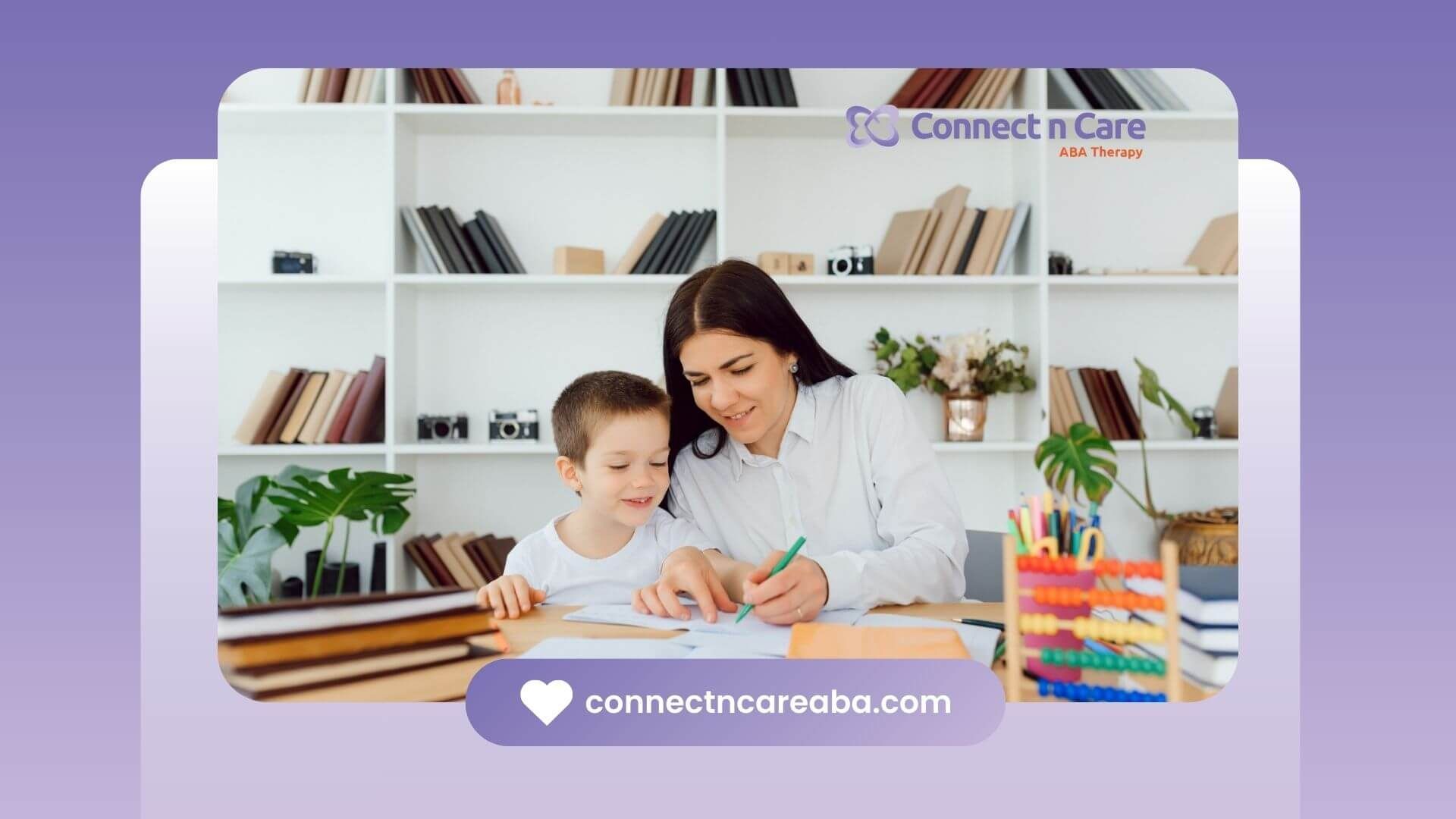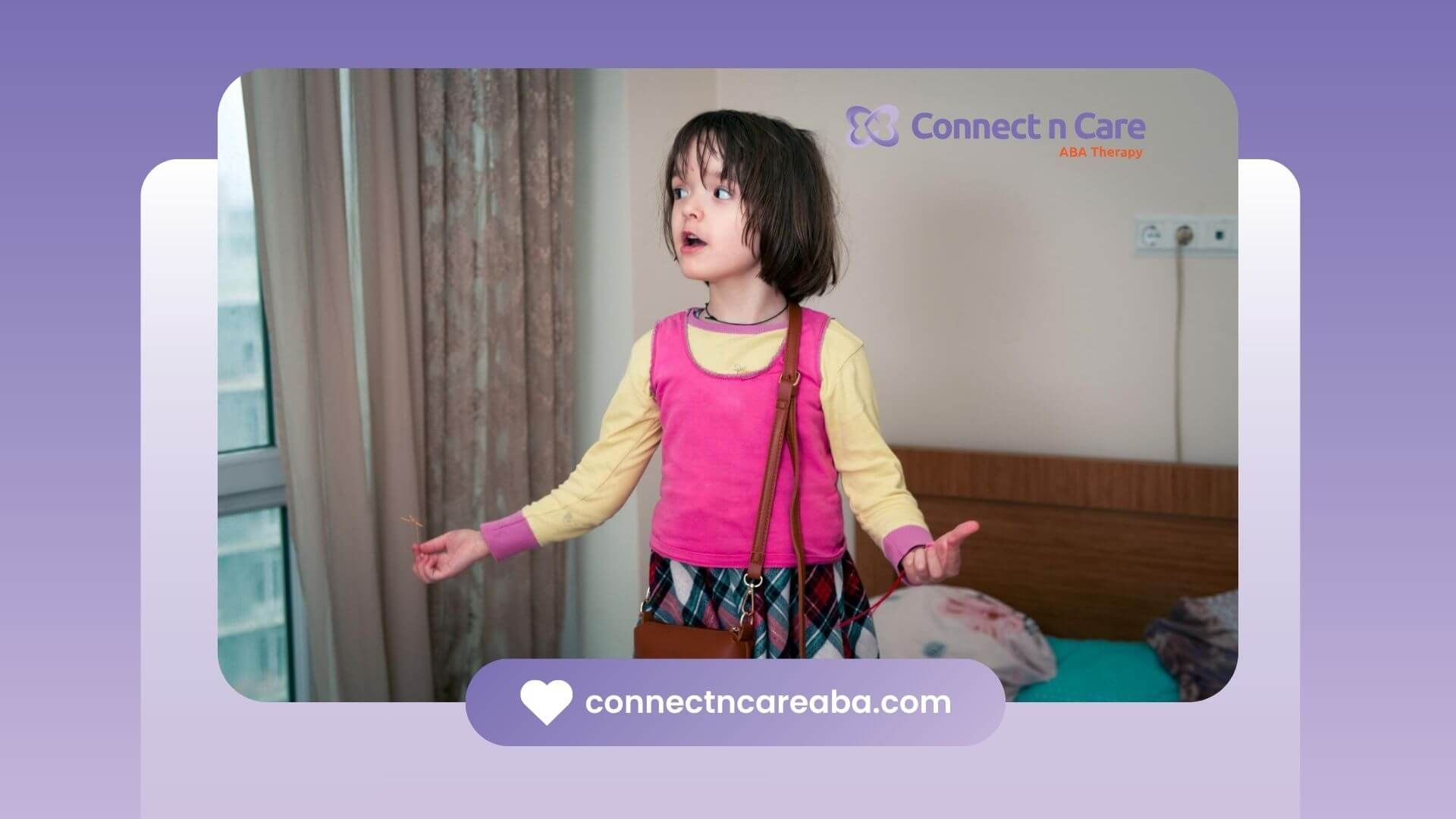Helping autistic children learn coping skills early gives them what they need to deal with everyday problems. Early autism intervention works on building emotional regulation, communication abilities, and strength. These skills help with their growth and independence. Professionals use evidence-based ways to make learning settings that meet what each child needs. With a focus on development, early help can lead to better emotional experiences and better quality of life. Now, let’s look at how this therapeutic process can help children who are diagnosed with autism.
The Role of Early Intervention in Autism
Starting early help is very important for children on the autism spectrum, especially when it comes to building the right coping skills. At this time, experts use set routines and plans which match the needs of each child. These help with the child's own struggles, like being sensitive to different things, talking with others, and learning emotional regulation.
Also, early support does more than help children find ways to deal with hard things. It builds a strong base for growing, learning, and picking up good coping mechanisms. When we work on these challenges early, it helps kids be stronger and handle tricky feelings better. This way, the child can learn to do well in daily life and get the most they can out of every day.
Importance of Early Diagnosis and Intervention
Noticing the signs of autism early plays a vital role for families. It helps people get support fast. When diagnosis happens early, specialists can work on key developmental needs. This way, autistic children can learn coping skills for their unique challenges.
Early intervention helps a lot by giving structured ways to build emotional regulation and improve communication abilities. Sensory processing techniques, like using visual aids and deep breathing exercises, help kids manage feelings in a controlled manner better. Doing this can lower anxiety and help with their emotional well-being. Daily tasks feel less overwhelming for them.
Starting intervention soon also supports the child in reaching as much of their potential as possible. It allows people to use strategies that fit individual needs. Programs like ABA therapy rely on positive reinforcement to teach good emotional responses. All these steps prepare autistic children for more independence and enhance the lives of individuals with autism for a better quality of life as they get older.
How Early Intervention Shapes Long-term Outcomes
Early autism intervention plays a big part in shaping the long-term lives of autistic children. It lays a strong base for their overall quality of life. If you start early, teaching coping skills, supporting communication, and helping with sensory issues, the interventions make it easier for the child to interact with others and feel okay in different places.
These strategies work now and also help children deal with tough times in the future. For example, letting children practice social skills helps them build meaningful relationships. It also makes them stronger and more stable emotionally. These things are important for long-term growth.
Early actions also help autistic children be more independent. They help children handle changes, get through stress, and set daily routines. When a child learns quality coping skills and gets the support they need, they often do better in school, have more work choices later, and enjoy a higher quality of life as adults.
Core Techniques in Autism Intervention for Coping Skills
Intervention programs for autism use many effective strategies that help with coping mechanisms. Behavioral approaches like ABA therapy work on building practical skills. This helps autistic children better handle their emotions and deal with daily challenges.
Play-based methods also be important. They use fun and creative ways to teach coping strategies. These ways help children understand things better, make the learning fun, and keep them interested. When you bring together behavioral approaches and play-based methods, you get a strong and robust framework. This helps autistic children get the coping mechanisms they need to face daily challenges with more confidence.
Behavioral Approaches to Enhance Coping Mechanisms
Behavioral approaches give a clear way to help autistic children build good coping mechanisms. ABA therapy is very helpful here, especially during challenging situations. It breaks big tasks into smaller, manageable steps for the child. The child is then encouraged when they show positive behaviors.
In ABA therapy, children get positive reinforcement. This helps them learn how to react in a better way to emotions. For example, if a child uses deep breathing to stay calm, they can get a reward. This helps them know how to control their feelings and actions.
Having a structured routine also matters a lot in these behavioral methods. When children know what will happen during the day, it takes away some worry about surprises or changes and creates a sense of predictability. Tools like visual aids, which include charts and social stories, give more help. They make it easier for autistic children to understand and handle different social situations.
Behavioral strategies give autistic children useful coping tools for day-to-day life. These tools help build up their independence and strength. In the end, they get better at handling problems and whatever life throws at them.
Integrating Play-Based Methods to Teach Coping Skills
Play-based approaches give the children practical strategies that help them learn coping skills in a fun way. Role-playing and group games let kids work on problem-solving and build emotional awareness at the same time.
The methods connect ideas that may be hard for children to understand to real-life situations. When kids play with sensory toys, they can learn how to handle their feelings better. Building with soft blocks or mixing colors is not just playful—it helps the children use their senses, calms anxiety, and teaches self-regulation.
Also, play-based therapy helps the children talk about feelings. Therapists may use things like puppets or storytelling, giving kids a safe place to share. By making sure that learning is both enjoyable and helpful, these tools strengthen coping skills and support good emotional states.
Emotional Regulation Strategies for Autistic Children
Building emotional regulation skills is very important for autistic children. It helps them deal with their feelings and reactions in a better way, and consistent practice using guided breathing exercises and sensory tools can help kids stay calm during tough times.
Also, mindfulness and relaxation techniques are good for their mental well-being. These practices help children know more about themselves and learn to handle emotional responses in a healthier way. This can help lower meltdowns. Using these strategies gives children what they need for better emotional regulation.
Teaching Techniques for Emotional Awareness and Expression
Helping autistic children understand and show their emotions needs clear steps and strong support. Many professionals use emotional charts to match faces with each feeling. This helps children know what they are feeling and put a name to it.
Visual supports, such as social stories, can make big feelings and tough moments easier to understand. They give easy guides that a child can use in daily life. For example, reading about a child who is frustrated can show some good coping mechanisms, such as asking for a break when they need it.
Doing deep breathing and deep breathing exercises, which involve taking slow, deep breaths, can also help a lot. Showing children how to breathe in slow and steady breaths teaches them to relax during emotional moments. Using this practice, autistic children can build better emotional skills and learn ways to manage big feelings.
Role of Family in Supporting Emotional Development
Family involvement has a vital role in helping autistic children grow emotionally. When families keep open communication, they make the home a safe place. This makes it easier for children to share their thoughts and feelings.
Emotional regulation gets better with regular support through various physical activities. For example, families can use sensory tools like weighted blankets or fidget spinners when their child feels stressed. They also help by using positive reinforcement when their child uses calming behaviors. These actions build up strong coping mechanisms for the kids.
Teaching families about easy steps, like guided breathing or mindfulness, means they can give good support at home. Working with therapists makes this even better. It helps their way of doing things match up with the ideas from professionals.
Communication as a Coping Skill in Autism Therapy
Effective communication has a big part in helping autistic children with daily challenges. Different therapies focus on making clear ways, emphasizing clear communication through visual aids and AAC systems. These tools make it easier for children to talk and also help lower their worry.
Other tools, for example, speech-generating devices, make it so a child can say what they need and how they feel. This better way of talking gives them more confidence. It makes it easier for them to move through social situations in a calm way. All of these ideas together help build strong coping skills for every day.
Enhancing Communication through Structured Learning
Structured learning gives a solid way for autistic children to build up their communication abilities. Using things like pictures and charts makes it easier for them to understand and join in. These visual tools help kids pick up on important signs in communication.
AAC systems are also helpful for building communication skills. Picture boards or talking devices let kids with low speaking ability say what they want in a clear way. This helps limit their frustration.
Giving kids practice with social situations in a planned way helps autistic children use and keep their communication skills. Trying out pretend talks lets them get used to real chats and helps them feel less nervous when it’s time for real-world conversations.
Alternative Communication Tools and Their Impact
Augmentative and alternative communication (AAC) tools have a big impact on coping strategies for autistic children. These tools help children find a way to express themselves. Low-tech tools, like picture cards or communication boards, make it easy for young children or those with trouble speaking to share what they want to say.
High-tech AAC tools, like electronic speech-generating devices, give more chances for different ways to interact. They help autistic children use their own words, so they can talk about complex ideas with less effort.
When visual aids are part of daily routines, they make each day feel more predictable. This cuts down on stress that can come from not being able to talk easily. These tools help stop misunderstandings, so children feel more sure of themselves and can join in with other people. Using visual aids helps autistic children keep up with daily routines and manage tough moments in a good way.
Developing Social Coping Skills Through Structured Social Interaction
Social coping skills are very important for autistic children. These skills help them to develop appropriate social behaviors and have meaningful relationships. When autistic children take part in group games or spend time with other kids, they get better at talking and working together. This can also help them feel less alone.
A structured place is also good for autistic children. It gives them comfort and helps them know what to expect. This makes it easier for them to talk and spend time with others without feeling upset. With some help and support from adults, these children can have good social times and grow emotionally when around others.
Importance of Peer Interactions and Group Activities
Peer interactions help autistic children build good social coping skills. Group activities, like working together in games, help them learn to share and take turns. This helps them grow in social skills.
Structured social skills training makes these interactions better. These programs with social skills focus on things like eye contact and knowing the right way to answer someone. This helps boost their confidence when talking to others.
When these activities include peers in a set plan, everyone can understand each other better. It helps friendships form and gives autistic children a real sense of being included with others.
Creating Safe Social Environments for Learning
For autistic children, it is very important to have a supportive environment. This kind of space helps them with social learning. When the place is structured and things are kept predictable, it creates a structured environment that lowers the stress that comes with social interaction.
Safe spaces help all children feel included. This gives them the chance to try new social skills and take part in different social moments without worry of being judged. Tools like visual prompts and social stories help set clear rules and make group activities easier to join.
A supportive environment lets children practice their social skills with more confidence. Over time, this helps them handle bigger challenges and become stronger in many situations.
Conclusion
To sum up, helping autistic children build coping skills early on is very important, as these skills play a crucial role in their development. Caregivers can use simple behavioral ways, support emotional regulation, and improve how kids talk to others. This can help them grow in a good way. It's good to set up safe, structured places for them that give support and help with social time and making friends. This helps children deal better with their emotions, changes, and challenges as they grow. Early help gives autistic children key coping mechanisms and also lets their families guide and support them along the way. If you want to help your child or someone you love, you can contact us for a free talk with our team. We are here to help, and together we can make things better.
At Connect n Care ABA, we understand that equipping young children with autism with effective coping skills is fundamental for their emotional well-being and long-term success. Our early autism intervention programs are specifically designed to nurture these vital abilities. Our compassionate therapists utilize evidence-based Applied Behavior Analysis (ABA) strategies to teach emotional regulation, self-calming techniques, and flexible thinking, fostering resilience from an early age. Choose Connect n Care ABA for a caring and connected approach that empowers your child with the tools they need to navigate their world confidently.
Frequently Asked Questions
What are the first steps in teaching coping skills to children with autism?
The first thing to do when teaching effective coping skills is to spot what sets off the child’s stress. After that, try some practical strategies. You can use sensory tools, set up a structured routine, and use positive reinforcement. When you add things like visual schedules or show kids deep breathing, the children on the autism spectrum can get better at handling their feelings.
How can caregivers support the development of coping skills?
Caregivers can help create a supportive environment for autistic children. They can do this by setting up routines. Using sensory tools can also make the day easier for both the child and the caregiver. It's good to notice and celebrate even small wins.
Emotional regulation can be supported by teaching mindfulness and other calming methods. Working with therapists helps. This way, the child gets the same kind of support from both home and therapy. With this plan, the child is more likely to get the skills they need to cope and do well.
What are common challenges when teaching coping skills?
Teaching coping skills can come with some challenges, especially in difficult situations. These can include sensory sensitivities, people not wanting change, and trouble with social situations. It is important to adjust how you teach, based on the individual needs of each person. You should focus on task breakdown, emotional regulation, and helping with communication. This way, you can really help with their unique challenges and make things work better for them.
Sources:
https://www.autismparentingmagazine.com/coping-skills-reducing-overwhelm/
https://www.nichd.nih.gov/health/topics/autism/conditioninfo/treatments/early-intervention
https://www.schoen-clinic.co.uk/post/the-importance-of-early-autism-diagnosis#:~:text=Recognising%20autism%20in%20its%20early,skills%2C%20and%20overall%20cognitive%20development.
https://www.leicspart.nhs.uk/autism-space/health-and-lifestyle/autistic-fatigue-and-burnout-coping-strategies/









